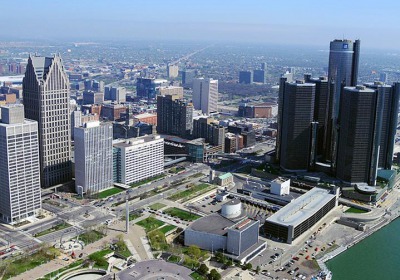U.S. auto sales continue to plunge in February
Tue, 03 Mar 2009February sales for each of the top six U.S. automakers plunged more than 37 percent in February--the worst month since December 1981.
"We are in an automotive depression amid 'The Great Recession,' " Standard and Poor's analyst Efraim Levy said in a report. "Shellshocked consumers fearful for their jobs, the value of their homes and stock market assets are wary of making the sizable discretionary purchases of new vehicles."
General Motors, which is staying afloat with government loans, had the biggest year-to-year decline among the biggest companies, 53.1 percent. Ford Motor Co. was next-worst at 49.5 percent, and Chrysler tumbled 44.0 percent below February 2008.
Toyota sales fell 39.8 percent, and Honda and Nissan sales were down more than 37 percent as the industry slid 41.3 percent.
Worse than forecast
Results for the six biggest automakers were worse than most analysts' forecasts. The industry total of 689,794 was the lowest of any month since December 1981 -- and the second-lowest since comprehensive light-vehicle monthly sales totals became available for comparison in 1975.
On a seasonally adjusted basis, the total was 9.05 million, also the lowest since December 1981 and the second-lowest on record. Cars fell 38.6 percent, to 353,784, and light trucks were down 44.0 percent, to 336,010.
Monthly U.S. sales haven't risen, year-over year, since October 2007, in stride with a 15-month recession. For three straight months, the year-over-year decline has exceeded 35 percent.
February's consumer confidence level fell to another historic low as continuing claims for unemployment benefits hit record highs and credit markets remained frozen.
The decline wasn't limited to the six companies. Volkswagen's VW and Audi brands fell 19.9 percent. Daimler AG slid 20.4 percent, and the Hyundai Group was down 0.7 percent.
Subaru, the only automaker to increase U.S. sales last year, held that same distinction in February. It delivered 5,978 units of its Forester, more than doubling last February's sales of the crossover.
Incentives rise
The industrywide sales decline came despite automakers' boosting average incentive spending by 15.9 percent over February 2008 levels and 8 percent above last month's, according to auto information site Edmunds.com. Edmunds has measured incentives--including interest rates, lease deals and cash rebates to dealers and consumers--for seven years.
The industry's fleet sales rose after being off two-thirds in January, according to Ford estimates. February's fleet sales accounted for 18 to 19 percent of total sales industrywide, said George Pipas, Ford's sales analyst. That's up from 15 percent in January.
GM said its fleet sales declined 75 percent, representing a slight increase from January deliveries.
Ford was hurt in February by the collapse of its top-selling vehicle, the F-series pickup. Last month Ford sold just 23,614 F-series trucks, down 55.1 percent from a year earlier.
"The people who are buying trucks are the people who need trucks," Pipas said. "There is not too much in the way of discretionary purchases of trucks these days."
Ford expects F-series sales to improve when funds from the federal economic stimulus package seep into the economy. But that money won't help until 2010, S&P analyst Levy said.
Strains on GM, Chrysler
The sales collapse will further strain GM and Chrysler, which are already surviving on $17.4 billion in federal loans. The automakers submitted restructuring plans to the Treasury Department last month and requested as much as $21.6 billion in additional funding.
Last month's SAAR of 9.05 million and January's 9.8 million figure mean that sales so far this year are running below the worst-case scenarios each automaker outlined in those plans.
January's sales rate was the lowest since August 1982. This decade, annual industry sales have averaged 16.4 million.
A committee of presidential appointees is deliberating whether GM and Chrysler will get additional aid or have their initial loans called due.
Ford said last week it had enough liquidity to survive without government loans even if total U.S. sales drop this year to 8.9 million.
Dave Guilford and Richard Truett contributed to this report.
By Chrissie Thompson- Automotive News

